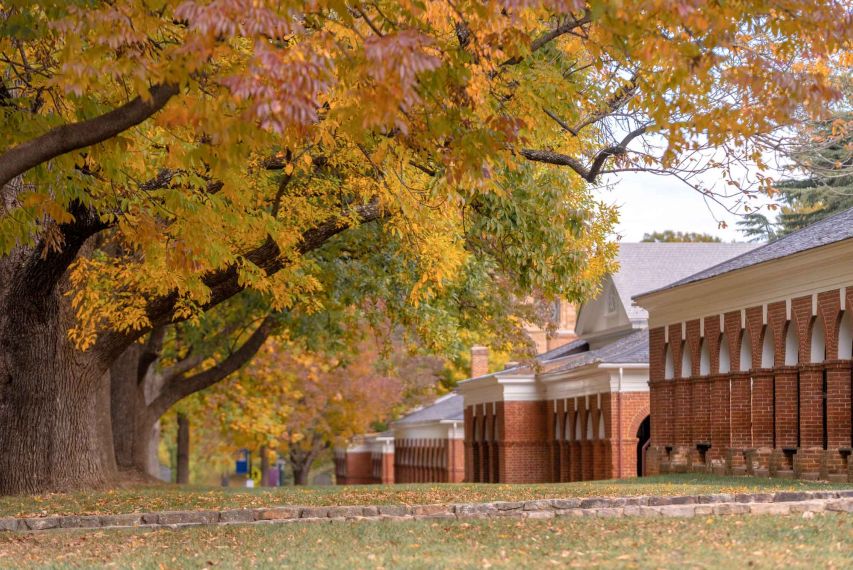The grants included seventeen grants for graduate student research (up to $1500), fourteen Center Grants for individual faculty research (up to $15,000), four grants for faculty global research with undergraduates (up to $7,500), three Global Initiatives Grants for research collaborations or intellectual gatherings (up to $7,500), as well as two Global Programs of Distinction (GPOD) grants for larger collaborative work (up to $100,000).
Some of the faculty projects awarded include:
● Accessible Fabrication Methods for Low-Carbon Structures in Developing Regions I Mohamed Ismail (Architecture)
● Advanced Polymers for Water Purification Applications I Geoffrey Geise (Chemical Engineering)
● Between Abolition & Opium: Race & Gender Across Asian & Caribbean British Imperialisms I Matthew Chin (Women, Gender, & Sexuality Studies)
● Brookes (Revisited) I Elgin Cleckley (Architecture)
● Capitals in the Margins: South Asia Since Partition I Neeti Nair (History)
● Comprehending Intricate Refugee Movements: A Precursor to Humanitarian Design & Planning I Earl Mark (Architecture)
● Contemplative Design Workshop: Applications in Higher Education I Michael Sheehy (Contemplative Sciences Center and Religious Studies)
● Crafting Electorates, Reshaping Borders: Foreign Occupation, Plebiscites, and Electoral Manipulation I Chris Carter (Politics) & Daniel Gingerich (Politics)
● Futurelands: Britain and the World at the End of Empire I Erik Linstrum (History)
● Rights without Rites: Concubines in the Post-Colony I Lean Sweeney (History)
● Stupas and Sacred Trees: Memorialization and Personhood in the Mountain Forests of Taiwan I Natasha Heller (Religious Studies)
● The Charlottesville Tapes Revisited: The Architectural Discipline Then and Now I Lauren Austin McQuistion (Architecture)
● The Intimacies of Empire in French and Francophone Worlds I Jennifer Sessions (History)
● Tiny Packages with Big Impact: Workshop on Extracellular Vesicle (EVS) Isolation and Characterization I Uta Erdbrügger (Medicine)
● Vietnam Polymath REU: A Mathematical Dialogue between UVA and Vietnam I Thomas Koberda (Mathematics)
● What Can Ancient Roman Engineers Teach Us About the Future of Infrastructure Materials? I Andrés Clarens (Engineering)
● Whose Heritage? Contested UNESCO Heritage Sites and Memory Wars in the Post-Socialist Public Space I Katia Dianina (Slavic Languages & Literatures)
The two GPOD grant winners were:
Performing the Past: An Exploration of Yoruba Agemo Rituals as Multimodal Historical Documents
This project by Olanrewaju Lasisi (Architectural History), Oludamini Ogunnaike (Religious Studies), Robin Garcia (Global Studies), and Ayodeji Ogunnaike (African American and African Studies) presents an interdisciplinary approach to digitizing, documenting, and preserving the Agemo rituals of the Yoruba people. Led by a team of experts in fields including global studies, religious studies, African American and African studies, and architectural history, the research focuses on the Agemo ritual rite. The methodology encompasses ethnographic studies, digital archiving, and archaeological excavations across 15 towns. The goal is to set the pace for the creation of a comprehensive digital archive that serves as a repository and dataset for future research, preserving the cultural and historical heritage of the Ijebu-Yoruba people. Through seeing the Agemo ritual and ritual movements as methods of doing and knowing, this project is set to establish a model for similar interdisciplinary cultural studies. Supported in partnership with the Carter G. Woodson Institute.
Building Capacity to Scale-up Violence Prevention in Mexican Elementary and Middle Schools
This project by Catherine Bradshaw (School of Education and Human Development, Human Services), Amanda Nguyen (School of Education and Human Development, Human Services), and Mercedes Gabriela Orozco Solis (University of Guadalajara, Mexico) aims to address growing concerns about school safety, youth violence, and mental health in Mexico by adapting and implementing the evidence-based Coping Power Program (Lochman & Wells, 2002) for high quality implementation in Mexican upper elementary and middle schools in partnership with practitioners and educators in Guadalajara, Mexico. This project will also build the capacity of UVA / University of Guadalajara partnership to conduct school violence prevention and implementation research. In addition to the focused work in this program and its adaptation for Mexican schools, our team plans to build UVA and University of Guadalajara trainees’ capacity for collaborative cross-national violence prevention research while partnering to secure additional external funding for subsequent research on violence prevention programming in Mexican schools.
Applications for Spring 2024 are now open for all of the CGII grants.




